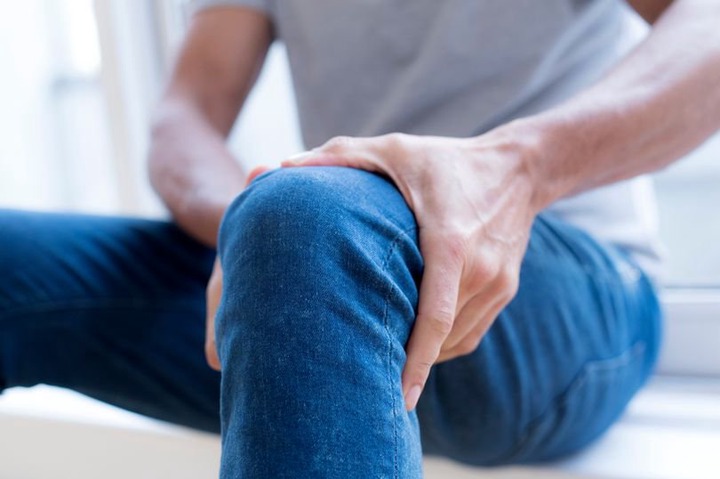
Aging is one of the many topics that many of us avoid talking about ― but even if you don’t acknowledge it, it doesn’t keep the process from happening.
“We’re all going to age, and we’re all going to die,” said Dr. Joshua Septimus, a primary care doctor at Houston Methodist Primary Care Group in Texas. While influencers on social media often tout anti-aging supplements and treatments, nothing actually keeps you from growing older, he said.
Instead, it’s important to put in the work and focus on the behaviors that can actually help you live a long, healthy life — not fads that don’t do much. It’s also important to focus on habits that will help you keep doing activities you love. For example, if you love traveling, you should try focusing on mobility so you can continue to move well throughout older adulthood.
“It’s not just adding years to your life, but adding life to your years,” said Dr. Aileen Pangilinan, a geriatrician at the UConn Center on Aging in Farmington, Connecticut.
So how do you increase your healthy years and keep doing the things you love? First, you avoid some common mistakes people make as they age. Below, doctors share what they avoid for the sake of healthy aging:
1. They never discount the importance of exercise.
“In geriatrics … there’s nothing that I prescribe more commonly than exercise,” Pangilinan said. “I’ve seen how much exercise has done to our older adults who have aged gracefully compared to those that have not … At this age, where you’re pulled in so many directions, you have to find time for yourself to exercise.”
Pangilinan specifically recommends prioritizing aerobic exercise.
“The goal is 150 minutes a week that is broken down to 30 minutes a day for five days a week,” she said. “And … that’s the goal, you don’t jump from zero to that goal in one day. We always recommend to try to increase slowly toward that target.”
You can try walking, running, swimming, dancing, biking, or whatever exercise you enjoy and keeps you moving. When it comes to healthy aging, exercise helps you maintain muscle mass and strength. These combine to help you maintain physical function and aid in disease avoidance as you get older.
The sooner you start regularly exercising the better, but it’s never too late to start, according to Pangilinan. “You can start exercising any time and still experience the benefits.”
“Really, the thing to avoid there is that sedentary lifestyle that is pretty easy to get into in modern life … many of us work at jobs where we sit a lot,” said Dr. Michael Danielewicz, the Director of Pride Care at the Jefferson Center for Healthy Aging in Philadelphia. “So even if you work at one of those jobs that has you sitting and not really moving around a lot, taking time to get up, making sure to plan in time for structured exercise, whether that’s a brisk walk or a jog or running a 10 miler.”
1. They never discount the importance of exercise.
“In geriatrics … there’s nothing that I prescribe more commonly than exercise,” Pangilinan said. “I’ve seen how much exercise has done to our older adults who have aged gracefully compared to those that have not … At this age, where you’re pulled in so many directions, you have to find time for yourself to exercise.”
Pangilinan specifically recommends prioritizing aerobic exercise.
“The goal is 150 minutes a week that is broken down to 30 minutes a day for five days a week,” she said. “And … that’s the goal, you don’t jump from zero to that goal in one day. We always recommend to try to increase slowly toward that target.”
You can try walking, running, swimming, dancing, biking, or whatever exercise you enjoy and keeps you moving. When it comes to healthy aging, exercise helps you maintain muscle mass and strength. These combine to help you maintain physical function and aid in disease avoidance as you get older.
The sooner you start regularly exercising the better, but it’s never too late to start, according to Pangilinan. “You can start exercising any time and still experience the benefits.”
“Really, the thing to avoid there is that sedentary lifestyle that is pretty easy to get into in modern life … many of us work at jobs where we sit a lot,” said Dr. Michael Danielewicz, the Director of Pride Care at the Jefferson Center for Healthy Aging in Philadelphia. “So even if you work at one of those jobs that has you sitting and not really moving around a lot, taking time to get up, making sure to plan in time for structured exercise, whether that’s a brisk walk or a jog or running a 10 miler.”
2. They also don’t discount the importance of strength training.
As mentioned, exercise is vitally important to healthy aging, and that goes for both aerobic exercise and strength training. Strength training allows you to maintain your mobility.
“One of the pillars of healthy aging when I counsel patients is muscle mass. I think it is absolutely critical that patients continue or start, if they didn’t already, strength training all the way into their elderly years,” Septimus said. “Because as we age, we lose lean muscle mass, and the more lean muscle mass that you can maintain into elder age, the more stable you’re going to be, and the less likely you’re going to be to fall.”
Falls are the biggest fear Septimus has for his patients once they reach their 70s.
It’s never too late to start strength training, he said, but it’s ideal to start when you’re young because you’ll have a better base as you get older. “I generally advise … that you should do resistance training twice a week [for 30 minutes], and that’s for all ages,” he said.
There isn’t one right way to strength train. Instead, it’ll depend on your age and abilities and what you enjoy enough to actually keep doing regularly. You can try yoga, pilates reformer, CrossFit, resistance band training exercises or bodyweight exercises, for example.
“The opportunity for strength training is limitless, you just have to be willing to engage, and often you have to find an expert who can instruct you into how to safely do it,” Septimus said.
3. They try not to isolate themselves.
“This is one of the harder ones ― and I want to qualify this before I say it. We know that social isolation has an impact on health. We know that can impact people’s longevity, it can impact people’s physical well-being, as well as their mental health,” Danielewicz said.
Danielewicz said he wouldn’t directly tell patients “not to isolate themselves,” since that’s not a reasonable demand. Isolation can happen when a person loses their family or social circle or because of a chronic illness, for example. It’s not exactly black and white.
“What I would say, though … I encourage folks to engage with their community, engage with their surroundings, spend time with support networks and other folks who matter to you,” he said.
Danielewicz recommends participating in local groups, whether that’s a community sports team, events at your local senior center, getting involved with community meetings or your local government. You can also make intentional plans with friends and family like starting a monthly book group, planning weekly walks with your neighbors or simply picking up the phone to catch up with your kids.
“That can be a good way to keep people engaged with other people, [keep their] minds sharp and to keep them from prematurely aging,” he said.
4. They don’t skip their cancer screenings.

“A key to healthy aging is making sure that you’re getting cancer screening,” Septimus said, pointing out that cancer is the second-leading cause of death in the U.S. next to cardiovascular disease. “We have a number of excellent screening tests for some of the most common cancers out there,” he added.
It’s important to make sure you’re up-to-date on checks like breast cancer screenings, prostate cancer screenings, cervical cancer screenings, colon cancer screenings, prostate cancer screenings and lung cancer screenings. You can talk to your doctor about what preventive tests you need and how often you should get them.
5. They don’t use tobacco or drink too much alcohol.
“We know that tobacco both prematurely ages folks on a physical level and on a cognitive level, so I encourage folks that if they do smoke or use tobacco products, that they really work with their providers, work with their support network to try to quit — understanding that’s really difficult to do,” Danielewicz said. Whether you’re 20, 40, 60 or 80, it’s never too late to quit using tobacco.
In line with this, you should also avoid drinking too much alcohol. This means two drinks or less each day for men, and one drink or less each day for women. But even this amount can be too much alcohol for some people, namely older adults with conditions like diabetes, high blood pressure and memory issues.
Alcohol is tied to conditions like cancer, heart disease, stroke and more, according to the Centers for Disease Control and Prevention. For the sake of your longevity and overall health, the less you drink the better.
6. They don’t stop challenging their brain.
“It’s very easy for folks of all ages to kind of go through their day and not try new things, not keep their minds active or engaged,” Danielewicz said.
Your cognitive abilities depend on keeping your brain stimulated, which requires learning new information and having novel experiences.
“Mental stimulation looks different for every single person … whether it’s reading a new book, engaging in some kind of civil discourse … being active in the community or, yes, doing puzzles, playing games, even sometimes video games,” he said.
While it may sound easy to do things like keep up your social connections, exercise and get all the necessary health screenings, reality tells us it’s not. Thanks to the stress of everyday life and the busyness that comes with being a human, it’s easy to fall into habits that aren’t so healthy and out of ones that can bolster your longevity.
“We’re all human,” Danielewicz said, adding that it’s important to not feel bad because you haven’t kept up with these habits ― rather, know that it’s never too late to start
Content by: Jillian Wilson








